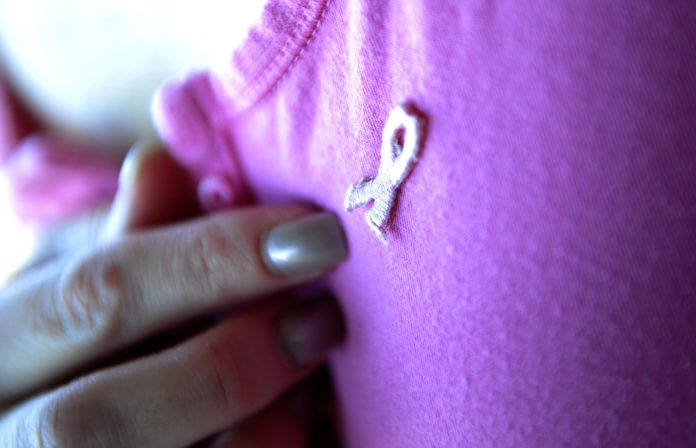Study finds that Asian American immigrant women have significantly higher breast cancer risk than their US born counterparts
Overall, breast cancer rates in the United States have stabilized since the 2000s. But according to the results of a new study led by a researcher from the University of California, Riverside, a subset of women living in the U.S. may be at higher risk for breast cancer than previously observed.
The study, published earlier this month in the medical journal Preventing Chronic Disease, identified differences in how Asian American women experience breast cancer risk. More specifically, it found that Asian American women who had immigrated had significantly higher risk for breast cancer than their U.S.-born counterparts.
Brittany N. Morey, a postdoctoral fellow in UC Riverside’s School of Public Policy and one of the study’s co-authors, said the findings are surprising because they run counter to established research that associated lower breast cancer risk with racial/ethnic minority populations born outside the U.S., including Asian American women.
Prior research, meanwhile, has linked high socioeconomic status with increased risk for breast cancer in numerous populations; thus, the higher-socioeconomic-status Asian Americans who have immigrated to the U.S. in recent years could be arriving “with higher risk for latent breast cancer than previous immigrant cohorts,”
According to the researchers, immigration patterns could have something to do with the phenomenon. The U.S.’s current immigration climate favors highly skilled Asian immigrants “who perhaps have a higher socioeconomic status than previous immigrant groups” arriving in the country, the researchers wrote.
Prior research, meanwhile, has linked high socioeconomic status with increased risk for breast cancer in numerous populations; thus, the higher-socioeconomic-status Asian Americans who have immigrated to the U.S. in recent years could be arriving “with higher risk for latent breast cancer than previous immigrant cohorts,” the researchers explained.
To tease out some of the nuances surrounding breast cancer risk and nativity, Morey and her co-authors collected data from 570 Asian American women living in the San Francisco Bay Area, which is home to the highest concentration of Asian Americans in the U.S. outside Hawai’i. From that 570-person set, 132 women had breast cancer and 438 did not.
The researchers separated the women in their sample into three groups: U.S.-born, immigrants who had lived 50 percent or more of their lives in the U.S., and immigrants who had lived less than 50 percent of their lives in the U.S.
After comparing the women’s cancer rates, Morey and her co-authors discovered that both categories of Asian American women who had immigrated had noticeably higher risk for breast cancer than their U.S.-born counterparts.
In particular, immigrant Asian American women who had lived in the U.S. for more than 50 percent of their lives were three times as likely to have breast cancer. Those who had lived in the U.S. for less than 50 percent of their lives were only slightly less likely — 2.46 times, to be exact.
“Other findings in our study coincide with previous findings on breast cancer among Asian American women,” the researchers wrote. For example, they observed higher risk for breast cancer among women of higher socioeconomic status; among women who had given birth to a first child over the age of 35; and among women who had a family history of breast cancer.
Morey said the study should be viewed as preliminary evidence of breast cancer’s greater risk to immigrant Asian American women, although further research is needed to clarify its results.
It also underscores the need for clinicians who serve immigrant Asian American women to be especially prepared to address their higher breast cancer risk through preventative interventions, among other forms of treatment.
“With groups as diverse as Asian Americans, it is important for future research to examine the differences in breast cancer risk that exist by nativity and national origin,” Morey said. “Furthermore, this diversity means that clinicians who detect and treat breast cancer should be prepared to offer in-language services and culturally sensitive care to their Asian American patients, especially as breast cancer risk in this group is on the rise.”


